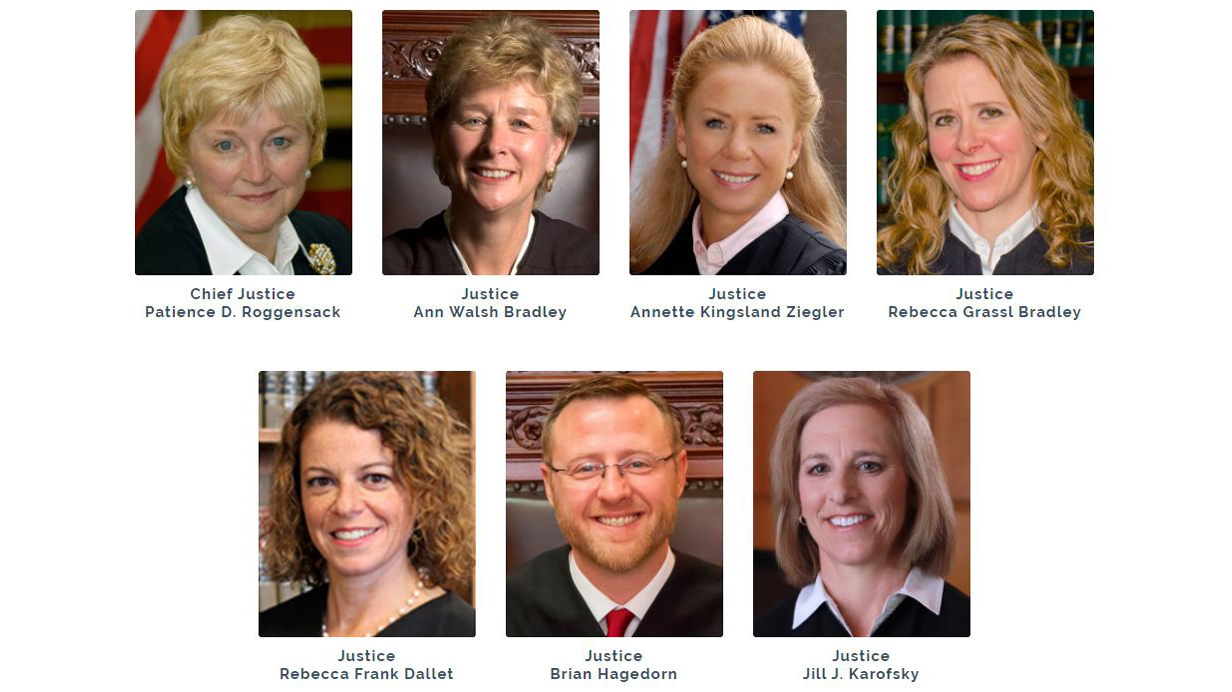
Dec. 14, 2020
The Wisconsin Supreme Court rejected the Trump campaign’s lawsuit over illegally cast absentee ballots on Monday by a 4-3 decision.
The campaign argued it was illegal for absentee ballots to be issued without a written request, for clerks to make corrections on incomplete absentee ballots, for Madison to conduct ballot harvesting as “Democracy in the Park,” and for voters following their clerk’s advice to lie about being indefinitely confined. The Trump Campaign said those ballots were all illegally cast and should not count.
Justices Brian Hagedorn, Ann Walsh Bradley, Rebecca Dallet and Jill Krofsky disagreed. They said not all indefinitely confined voters lied, and so they couldn’t toss all those ballots. As for the other challenges, they cited “latches,” which, simply put, means the Trump Campaign should have filed the lawsuit before the election. After the election was too late.
“The majority claims the petitioners were too late, should have acted earlier and therefore, the court is neutered from being able to declare what the law is,” Ziegler said.
Hagedorn argued that Wisconsin has allowed those illegal procedures for years. Absentee ballots have been issued without written requests since 2010 and WEC has allowed clerks to add missing information on absentee ballots since 2016. No one has complained until now.
“The Campaign offers no reason for waiting years to challenge this approach, much less after this election. None exists,” Hagedorn wrote.
The dissenting justices, Patience Roggensack, Annette Zeigler and Rebecca Bradley argued the court was punting on the lawsuit.
Ziegler said the lawsuit was simply “a challenge to specific ballots that were cast in this election, contrary to the law.”
She said the court refused to answer that question, which was an abdication of its responsibility. When there is a question over what the law says, Justice Ziegler said it’s the supreme court’s responsibility to answer that question.
“I have concern over this court’s pattern of indecision because that leaves no court declaring what Wisconsin election law is,” Ziegler said.
Ziegler said she doesn’t buy into the rationale that election day was the deadline to file this case.
“The majority claims the petitioners were too late, should have acted earlier and therefore, the court is neutered from being able to declare what the law is,” Ziegler said.
“Once again, the majority of the Wisconsin Supreme Court wields the discretionary doctrine of laches as a mechanism to avoid answering questions of law the people of Wisconsin elected us to decide,” Justice Rebecca Bradley wrote.
Rebecca Bradley said WEC cannot make up rules that contradict state law.
“The Wisconsin Elections Commission (WEC) possesses no authority to prescribe the manner of conducting elections; rather, this legislatively-created body is supposed to administer and enforce Wisconsin’s election laws,” she wrote.
Ultimately, WEC provided “erroneous” advice to Milwaukee and Dane County clerks, but that does not mean those ballots should be counted.
Bradley explained voting is a right, but absentee voting is a privilege. She points out if absentee voting procedures don’t follow the law, the law says those ballots “may not” be counted or included in the certified election results.
“This court possesses no authority to remove any qualified elector’s constitutionally-protected right to vote. But it is not ‘disenfranchisement’ to uphold the law,” Justice Rebecca Bradley countered.
Shortly after the Supreme Court issued its decision, Wisconsin’s electors met at the state capitol to cast their votes for Joe Biden.